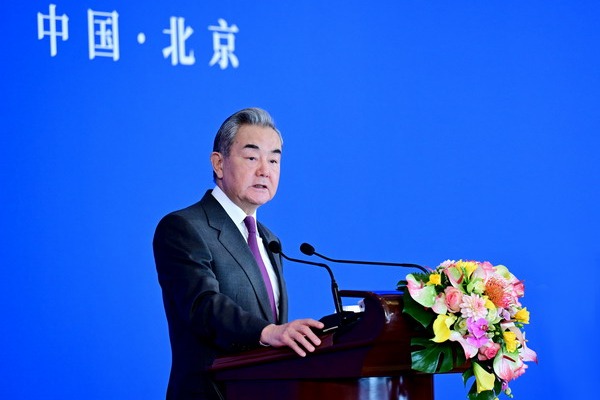All parties concerned urge reciprocating de-escalation of Korean Peninsula

BEIJING -- As the situation on the Korean Peninsula began to embrace a spring thaw, all parties concerned have called for reciprocating the de-escalation and help ease tensions.
On Monday, Chinese President Xi Jinping said "we expect a smooth DPRK-South Korea summit and DPRK-U.S. dialogue," while meeting with Chung Eui-yong, top national security advisor for South Korean President Moon Jae-in in Beijing, who came to brief Xi on his recent visits to the DPRK (Democratic People's Republic of Korea) and the United States.
As a close neighbor of the Korean Peninsula, China always supports South Korea and the DPRK in improving ties and promoting reconciliation and cooperation, Xi said.
China also supports the United States and the DPRK to begin dialogue and resolve their concerns through negotiation, Xi said.
He pointed out that China remains persistent in denuclearizing the Korean Peninsula and maintaining its peace and stability.
At present, the situation on the Korean Peninsula faces an important opportunity to ease tension via dialogue, Xi said, noting that China spoke highly of the South Korean efforts and is willing to work with the international community to promote the political settlement of the Korean Peninsula issue, combining China's "dual-track approach" with helpful proposals from all sides.
Xi called on all sides to be patient and cautious, and to exercise their political wisdom to properly deal with the various issues and disturbances while resuming negotiations.
As long as all parties can focus on the fundamental goal of denuclearization, peace and stability, the Korean Peninsula will finally usher in the spring, when ice will thaw and flowers will boom, Xi said.
U.S. President Donald Trump said Friday that the deal with the DPRK is "very much in the making" and will be good for the world.
Trump has accepted the DPRK top leader Kim Jong Un's willingness to hold a DPRK-U.S. summit, saying he would meet with Kim by May to achieve a permanent denuclearization.
Over a phone conversation with President Xi on Friday, Trump said the nuclear issue has shown positive development recently, adding that a high-level meeting between the United States and the DPRK meets the interests of all parties, hoping for an eventually peaceful solution to the nuclear issue.
It has been proved that Xi was correct to insist on a dialogue between the United States and the DPRK, Trump said, adding that the U.S. side highly appreciates and values China's significant role in resolving the Korean Peninsula issue, and is willing to strengthen communication and coordination with China over the issue.
Japanese Prime Minister Shinzo Abe expressed Tuesday a willingness to explore the possibility of a summit between him and the DPRK top leader, while meeting with Suh Hoon, director of the South Korean National Intelligence Service (NIS), who paid the visit to Japan to explain the result of visits to Pyongyang and Washington.
Japan and the DPRK can discuss at their summit on the abduction issue and the normalization of bilateral ties, while the nuclear and missile issue will be discussed at a summit between Kim and Trump, Japan's Kyodo News reported.
Russia consistently supports steps toward lowering the tensions on the Korean Peninsula and abandoning confrontational rhetoric, Russian Foreign Minister Sergei Lavrov said on Tuesday at a meeting with visiting South Korean special presidential envoy Chung.
Lavrov stressed that Russia welcomes Seoul's desire to build a broad front of participants in the settlement process on the Korean Peninsula.
Moon, the South Korean president, said on Monday that a precious opportunity was created to open a door to a denuclearized Korean Peninsula, a permanent peace regime and co-prosperity of the two Koreas.
If the opportunity was successfully taken, a dramatic change will be recorded in world history, Moon noted.
Signs of further detente on the Korean Peninsula were detected as Kim made a tension-easing gesture during the high-level South Korean delegation's two-day visit to Pyongyang. For the first time since he assumed power, Kim personally hosted a dinner for the delegation.
Before that, the DPRK sent athletes to participate in the PyeongChang Winter Olympics and held talks with South Korea.

































